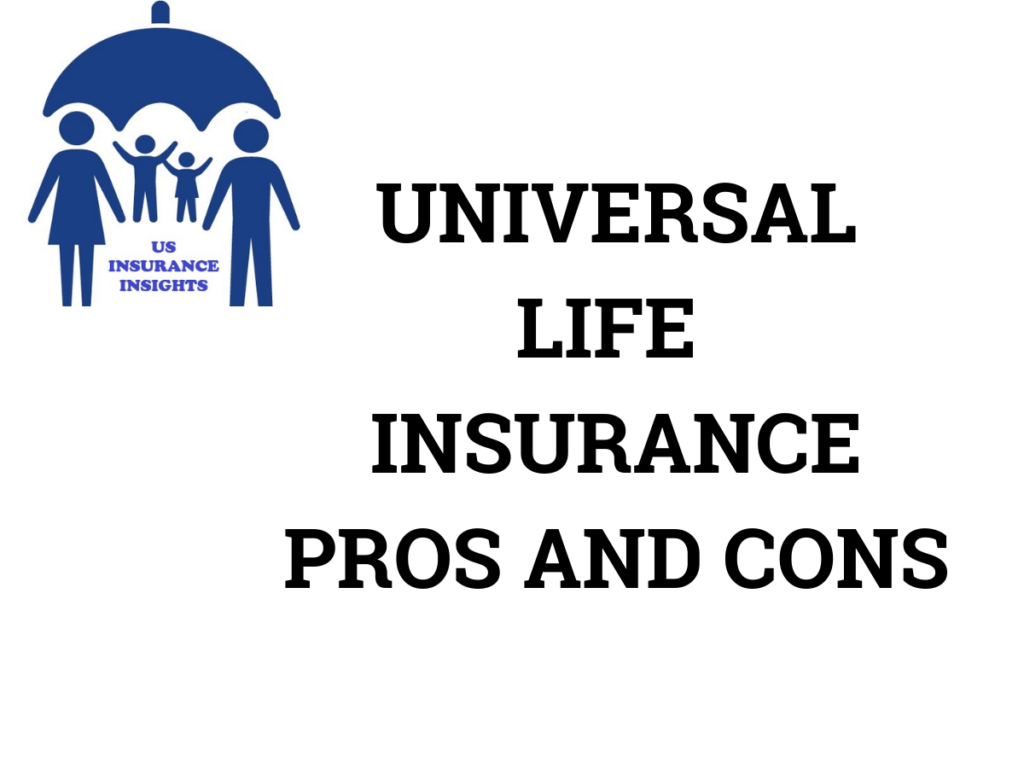universal life insurance pros and cons? Introduction
Universal life insurance lets you have life cover and the chance to grow your money through investments. Many people in the United States look at it as another option instead of whole life insurance or term life insurance, so is it suitable for your needs? We’ll go over the benefits and disadvantages of universal life insurance in this article so you can decide what’s best for you.
What is meant by Universal Life Insurance?
A Universal life policy is a type of lifelong insurance that lasts as long as your premiums are paid. This policy includes an investment section, so your money grows as the years go on. The policyholder can change the premiums and the amount given as death benefits to suit their financial state.
Benefits of Universal Life Insurance
1. Lifetime Coverage
While term life insurance ends after a certain number of years, universal life insurance is set up to last all your life. So long as you continue paying for the policy while you are alive, your loved ones will get a payment after your passing.
2. Growth of the Cash Value
Building up cash value is a major selling point of universal life insurance. Some of your payments are put into investments, so the money can increase over time as interest rates or market changes.
Anecdote: Jane, who is 45, bought a universal life insurance policy 20 years ago. Today, she has both life insurance and a significant amount of money saved up which she can access if she needs any help.
3. Flexible Premiums
You don’t have to pay the same premium amount for universal life insurance. The amount you set can be changed depending on your finances, so it can be increased or decreased when appropriate.
4. Tax Advantages
Money in a universal life policy grows over time without having to pay taxes, but you’ll owe tax if you take the cash out. Thus, it can be an effective part of estate planning.
5. Taking Money out from the Cash Value
After accumulating enough cash value, you may take out a loan at relatively inexpensive interest. Emergency costs, saving for retirement or covering higher education costs can all benefit from using the funds.
Some disadvantages of Universal Life Insurance
1. High Costs
Buying universal life insurance is usually much more expensive than buying term life insurance. Over the years, the expenses for administration, investing and covering deaths can increase.
2. Many investment risks are not simple.
Unlike just a simple term insurance policy, universal life insurance also includes certain investment risks. If the market is bad, the value of your cash could stay low and you could need to increase your premiums to continue covering the policy.
Tom, who is a 50-year-old consultant, decided to get a universal life insurance policy because he wanted steady cash growth. However, because the market wasn’t doing well, he had to pay extra in premiums to keep his plan.
3. The risk of no coverage exists if coverage is not renewed.
If you don’t pay the premiums and cash value in your policy is low, it could lapse and you might not have life cover anymore.
4. Silos That Limit Management
Since stocks and mutual fund investments are controlled by you, with universal life insurance, the decision is instead made by the company providing the policy. So, you might miss out on higher potential returns sometimes.
5. There Is a Risk of Lower Returns
Though universal life insurance helps you build an investment, the payout is usually less than what you could get if you invested your money on the stock market separately.
What Are the Right Candidates for Universal Life Insurance?
Universal life insurance may work well for you if:
- You should have a plan that contains lifetime coverage, but allows you to change your premiums as needed.
- Desire to set up money in a way that pays the least amount in taxes.
- Have significant assets and decide to use estate planning products.
- Can handle some possible losses from investing in stocks.
- But if you need life insurance only for a short amount of time and want to save money, getting term life cover is best.
How to Pick a Universal Life Insurance Policy in a Systematic Way
At the beginning of the process, reflect on which goals are important to you financially.
Decide whether you are looking for life insurance mostly for financial protection or for building your investments.
The next phase is to closely compare different policy choices.
Every insurer has its own rules, prices and things to invest in. Explore a number of possibilities before deciding on one.
Step 3: Check and Know The Fees
Examine the mortality charges, investment fees and administrative costs, as these things may reduce your returns.
Step 4: Look at the Flexibility Terms
- Find out if you are able to adjust your insurance policy as your finances change.
- Consulting a professional is the next step to follow.
- Your financial advisor can advise you on whether universal life insurance fits what you are looking for.
Final Thoughts
Universal life insurance makes it possible to maintain coverage, benefit from growing investments and make changes when needed. At the same time, there is a greater risk and additional cost involved with hedge funds. Consider both the advantages and disadvantages and think about approaching a financial expert to check that the option fits with what you want for your future.


1 thought on “Powerful Universal Life Insurance Pros and Cons in the US”